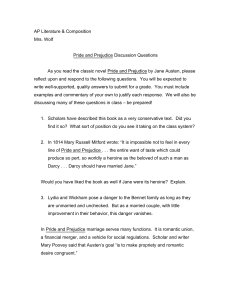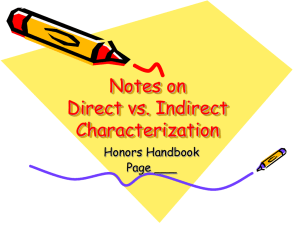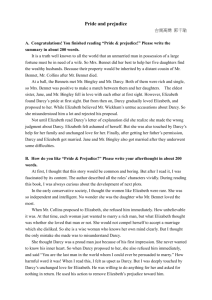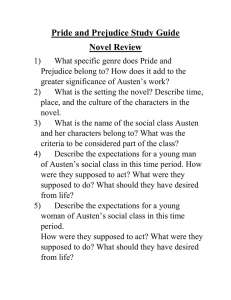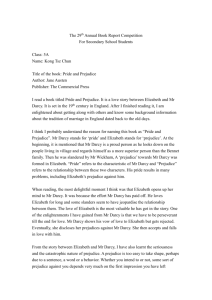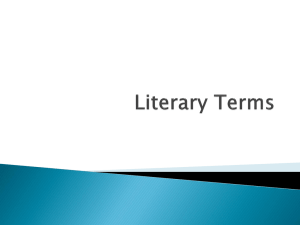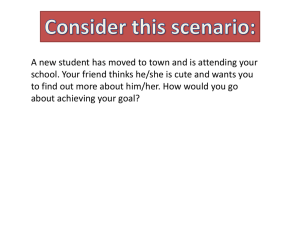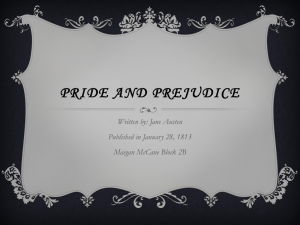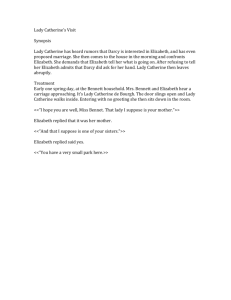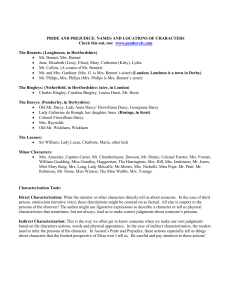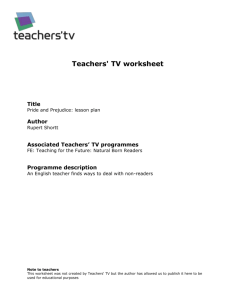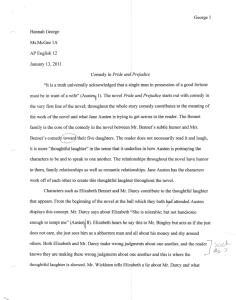Meg Carr Luna Lemus-Bromley Schuyler Semenuk Liz Semeraro
advertisement
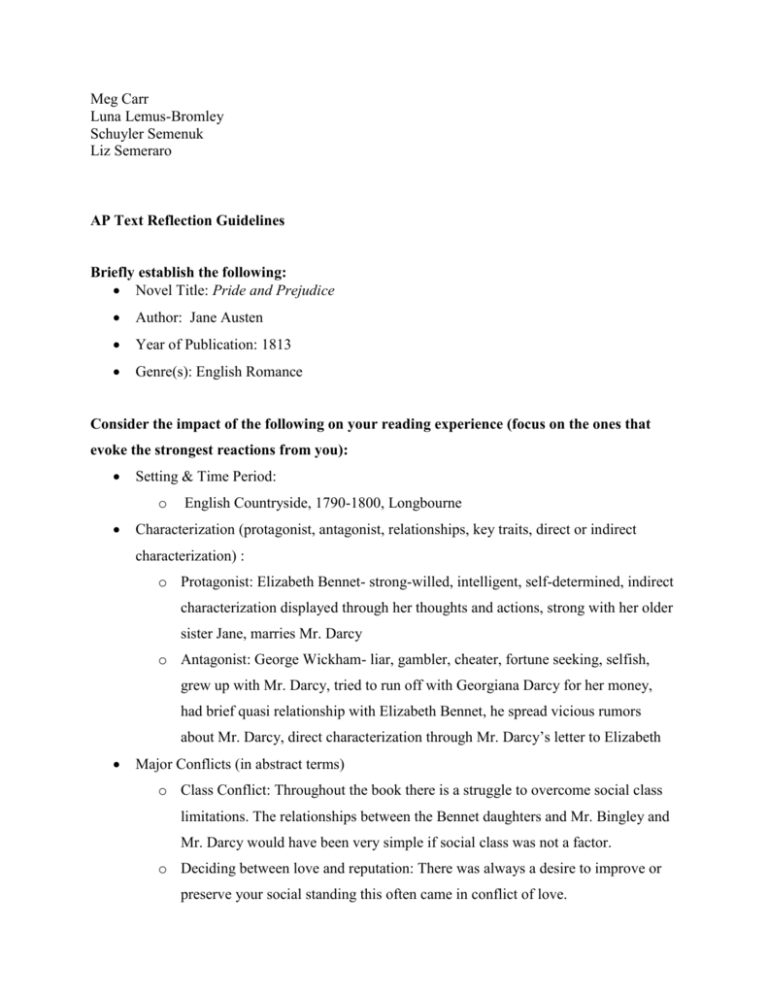
Meg Carr Luna Lemus-Bromley Schuyler Semenuk Liz Semeraro AP Text Reflection Guidelines Briefly establish the following: Novel Title: Pride and Prejudice Author: Jane Austen Year of Publication: 1813 Genre(s): English Romance Consider the impact of the following on your reading experience (focus on the ones that evoke the strongest reactions from you): Setting & Time Period: o English Countryside, 1790-1800, Longbourne Characterization (protagonist, antagonist, relationships, key traits, direct or indirect characterization) : o Protagonist: Elizabeth Bennet- strong-willed, intelligent, self-determined, indirect characterization displayed through her thoughts and actions, strong with her older sister Jane, marries Mr. Darcy o Antagonist: George Wickham- liar, gambler, cheater, fortune seeking, selfish, grew up with Mr. Darcy, tried to run off with Georgiana Darcy for her money, had brief quasi relationship with Elizabeth Bennet, he spread vicious rumors about Mr. Darcy, direct characterization through Mr. Darcy’s letter to Elizabeth Major Conflicts (in abstract terms) o Class Conflict: Throughout the book there is a struggle to overcome social class limitations. The relationships between the Bennet daughters and Mr. Bingley and Mr. Darcy would have been very simple if social class was not a factor. o Deciding between love and reputation: There was always a desire to improve or preserve your social standing this often came in conflict of love. o Gender Roles: The constraints of gender norms were significant throughout the book. Elizabeth is willing to defy many standard expectations. Key Scenes (turning points, climaxes, resolution – mark key passages in book as you read) o Mr. Collins’ proposal o Mr. Darcy proposes to Elizabeth o Mr. Darcy’s letter o Catherine de Bourgh confronts Elizabeth about not marrying Darcy Key Quotations….lines that really convey thematic impact or moved you (annotate: speaker situation, relevance, page #) o “It is a truth universally acknowledged, that a single man in possession of good fortune must be in want of a wife.” (3) o “In vain have I struggled. It will not do. My feelings will not be repressed. You must allow me to tell you how ardently I admire and love you.” (171) o “Upon my word, sir… your hope is a rather extraordinary one after my declaration… I am perfectly serious in my refusal.” (102) o “Vanity and pride are different things, though the words are often used synonymously. A person may be proud without being vain. Pride relates more to our opinion of ourselves, vanity to what we would have others think of us.” (16) o “Happiness in marriage is entirely a matter of chance.” (Chapter 6) Themes of Interest (elements that would be a part of a theme statements results) o Love conquers all (sometimes) o Journeys o Sacrifice- Love and Reputation o Restriction of social class o Trust o Growth and change of relationships o Pride o Prejudice Analysis of An Author’s Style & Structure What point of view does the author use? o Third person limited of Elizabeth What are the characteristics of the narrator? o Does the narrator employ direct or indirect characterization? There is direct characterization (somewhat unreliable) from Elizabeth as well as indirect characterization through the actions of the characters o Does the narrator let the reader draw his own conclusions, or are they drawn for the reader? The narrator draws conclusions for the reader. The reader is forced into seeing the world from Elizabeth’s point of view. What are the notable characteristics of syntax? o Doe the author use short, simple sentences or long, complex ones? Long-winded sentences, flowing details, superfluous wordage, selectively descriptive o Is the prose efficient or florid? Florid o Does the narrative feel drawn out or underdeveloped? Drawn out but underdeveloped in places. Large sections were lacking meaningful action Is the diction (vocabulary choice) simple or complex? o The diction is simple except for outdated terms. Does the narration seem reliable? If no, what causes the reader to question it? o It is not reliable it is obviously biased. However, this is the intention of the author. How would you characterize the overall mood of the narrative? o Stressful, anxious, petty o Story is tedious What is the structure of the narrative? (e.g. chronological, a chronological, flashback, vignette) o Chronological- straight forward What impact does the structure have upon the reader’s experience? o It makes the story easy to follow or boring depending on the reader
